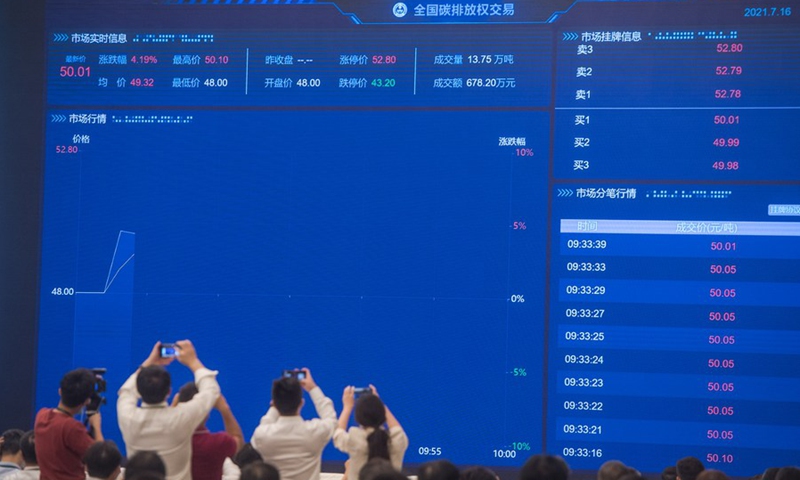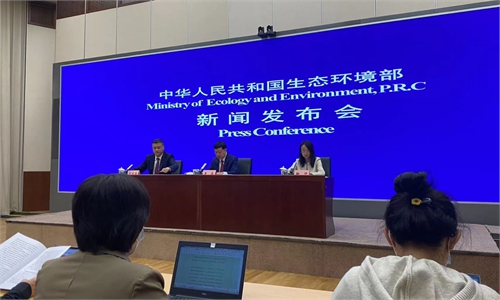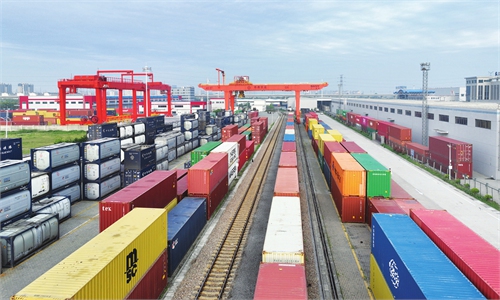
Photo taken on July 16, 2021 shows a screen displaying real-time information of national carbon emission trading in Wuhan, central China's Hubei Province.(Photo: Xinhua)
China's national carbon market on Sunday marked its second anniversary with cumulative turnover hitting 11.03 billion yuan ($1.54 billion).In its past two years, the market has operated in a smooth and orderly manner, with gradual progress in emissions reduction, experts said. They said the market would gradually include more high-emission industries.
On July 16, 2021, online trading of the national carbon market was officially launched, covering about 4.5 billion tons of carbon dioxide emissions per year, making it the largest carbon market in the world.
As of Friday, the cumulative transaction volume of carbon emissions allowances in the national carbon market was 239.9 million tons, with cumulative transactions of 11.03 billion yuan, according to data released by the Shanghai Environment and Energy Exchange.
Initially, 2,162 power companies were included in the trading system.
By trading in the carbon market, companies can calculate their carbon emissions more effectively and precisely, followed by disclosure progress, which is of great significance to reduce carbon emissions, Ma Jun, director of the Beijing-based Institute of Public and Environmental Affairs, told the Global Times on Sunday.
The carbon market will expand to include more energy-intensive industries including steel, cement, building materials, nonferrous metals, chemicals and petrochemicals, Ma said.
China has made positive progress in addressing climate change through measures such as energy conservation, carbon and emissions reductions, and the establishment and improvement of a carbon market, said Vice Minister of Ecology and Environment Guo Fang at a National Low-Carbon Day activity on Wednesday.
Guo said that the Ministry of Ecology and Environment will continue to implement a national strategy to respond actively to climate change, promote the construction of a national carbon market in a steady and orderly manner, and participate actively in global governance to address climate change.
China aims to peak its carbon dioxide emissions before 2030 and achieve carbon neutrality before 2060.


